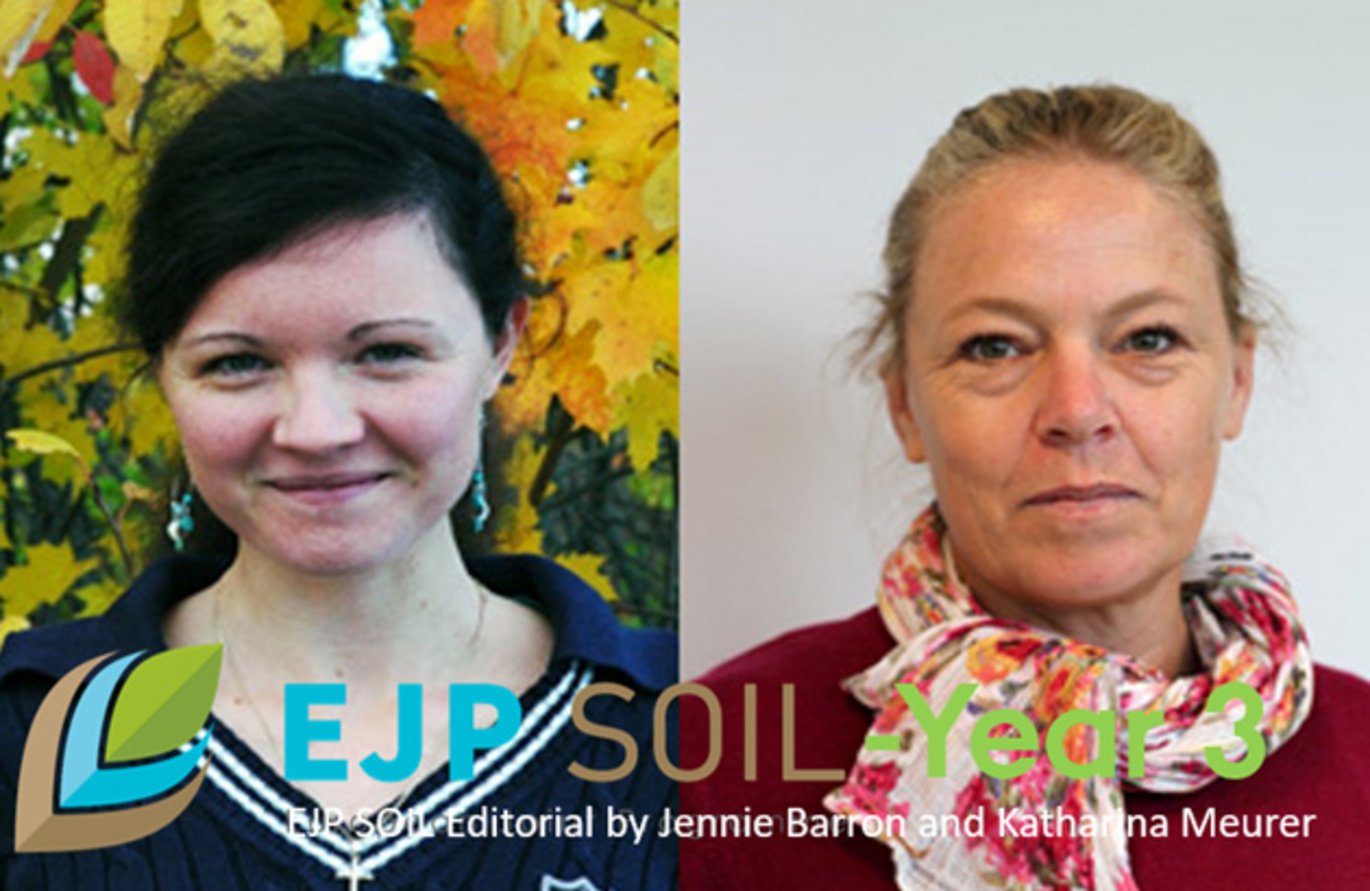EJP SOIL Newsletter editorial - October 2022 – by Jennie Barron, leader of WP5: Education, training and capacity building and Katharina Meurer, PhD School coordinator
The actions in higher education and capacity building under the EJP SOIL program have provided a baseline for capacity building needs and initiated a set of cross-European activities to strengthen especially early career soil scientists skills and knowledge.

The importance for capacity building and soil science education has a specific action to mobilize the necessary societal engagement for the Soil Strategy for 2030, agreed upon by the EU Parliament in November 2021. In line with this, the mission A Soil Deal for Europe aims at creating a shared research and innovation vision accelerating Europe´s trajectory towards sustainable soil management by creating 100 living labs and lighthouses. These objectives go beyond scientists, and intend to raise soil literacy and knowledge for experts and farmers of soil management, as well as for policy makers and the general public.
The actions in higher education and capacity building under the EJP SOIL program have provided a baseline for capacity building needs and initiated a set of cross-European activities to strengthen especially early career soil scientists skills and knowledge. The EJP SOIL synthesis on the current state of soil science in European Higher Education by Vila Solis et al. (2021) surveyed Higher Education institutions in 25 European countries. It concluded that soil science is primarily embedded in non-soil degree programmes and that Higher Education teaching and learning may need to evolve, both to improve teaching and learning approaches, update teaching materials, and consider enhancing digital skills. Networking across institutions is a priority, also with regards to joint teaching materials and staff and student exchange. A follow-on survey across 26 European countries, consulting both academics and future policy and private sector employers focused on future skills and knowledge needs from soil science graduates, showed that new generation soil expertise needs both systems and deep specific knowledge that link soils closely with agronomy (Veenstra et al. submitted).
The second major action under EJP SOIL to contribute to capacity strengthening are the targeted PhD School and researcher exchange grants for early career researchers and young scientists. To date, 3 PhD Schools with a total of 59 participants from 13 countries have been held as of October 2022. In addition, the first 3 calls for Visiting Scientists/mobility grants attracted 15 grantees. In addition, a dedicated training course on the INSPIRA system attracted 23 attendees from 9 countries in April 2022. A follow-up course is planned for January 2023.
EJP SOIL will continue the attempt to increase researchers mobility and capacity building in 2023 with 2 more calls for Visiting Scientists (April and September 2023) and 3 more PhD Schools that will be held in France (April), Denmark (May), and Sweden (June).
To extend the EJP SOIL experiences, which has been dedicated to Higher Education and early career soil scientists, we continue to dialogue and exchange experiences. In 2023, we specifically engage with the new dedicated Mission “A Soil Deal for Europe” initiatives that will address soil literacy for a range of actors, such as citizens and Communities of Practice, secondary school education, and advisory (extension) service in the PREPSOIL project.
For further information, please contact
Jennie Barron, jennie.barron@slu.se
Katharina Meurer, katharina.meurer@slu.se